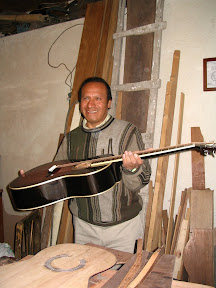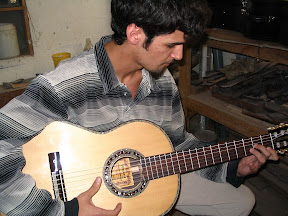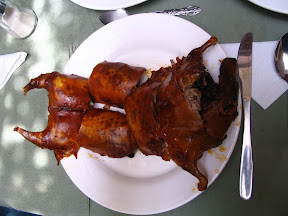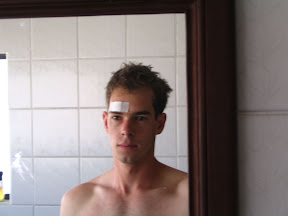Bury My Heart at Wounded Knee
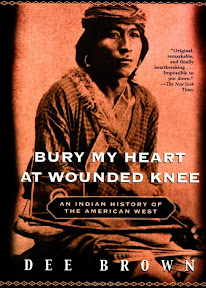 |
When the prairie is on fire you see animals surrounded by the fire; you see them run and try to hide themselves so that they will not burn. That is the way we are here.
-Surrounded
I picked up this book at a hostel in Quito and couldn't put it down. I finished it shortly after getting to Cuenca. It details the American expansion westward from 1850-1900 from the perspective of Native Americans. If it was fiction, I'd consider it one of the saddest books I've read. That it's non-fiction makes it disturbing and heartbreaking. It filled a gap in my knowledge that I only had vague ideas about beforehand.
My idea is that, unless removed by the government, they [the Indians] must necessarily be exterminated. ... The advantages that would accrue from the throwing open of 12,000,000 acres of land to miners and settlers would more than compensate all the expenses incurred.
-Frederick Pitkin, former miner and then-Governor of Colorado (which contained the Indian territory he wanted to "open")
Of the 3,700,000 buffalo destroyed from 1872 through 1874, only 150,000 were killed by Indians. When a group of concerned Texans asked General Sheridan if something should not be done to stop the white hunters' wholesale slaughter, he replied: 'Let them kill, skin and sell until the buffalo is exterminated, as it is the only way to bring lasting peace and allow civilization to advance.'
-Another tactic designed to destroy the Indians' livelihood
"From down the creek a large body of troops was advancing at a rapid trot... I looked toward the chief's lodge and saw that Black Kettle had a large American flag tied to the end of a long lodgepole and was standing in front of his lodge, holding the pole, with the flag fluttering in the gray light of the winter dawn. I heard him call to the people not to be afraid, that the soldiers would not hurt them; then the troops opened fire from two sides of the camp." ... By this time hundreds of Cheyenne women and children were gathering around Black Kettle's flag. Up the dry creek bed, more were coming form White Antelope's camp. After all, had not Colonel Greenwood told Black Kettle that as long as the United States flag flew above him no soldier would fire upon him? White Antelope, an old man of seventy-five, unarmed, his dark face seamed from sun and weather, strode toward the soldiers... "He came running out to meet the command holding up his hands and saying 'Stop! stop!' He spoke it in as plain English as I can. He stopped and folded his arms until shot down." ... When Left Hand saw the troops, he stood with his arms folded, saying he would not fight the white men because they were his friends. He was shot down.
-Beginning of the description of the Sand Creek Massacre, only a small glimpse of the horrors soon to occur
So documents Dee Brown the various ways millions of Indians were removed from their land and/or exterminated, otherwise known as genocide in today's language. Whether it was through brute military force, elimination of their food supply, agitating and organising armed settlers, or forcing them onto barren reservations, one by one all the tribes of Indians were pushed out to make way for the expanding nation of America.
We have sat and watched them pass here to get gold out and have said nothing... My friends, when I went to Washington I went into your money-house and I had some young men with me, but none of them took any money out of that house while I was with them. At the same time, when your Great Father's people come into my country, they go into my money-house [the Black Hills] and take money out.
-Long Mandan
Miners wanted gold, settlers wanted the best pieces of property, and a combination of racism and Manifest Destiny made stealing Native American land an easy sell. In remarkably short periods of time, areas once declared to be Indian property "forever" and "permanently" were soon overrun, and one by one, each treaty made between the Native Americans and the United States government proved to be worth nothing more than pieces of paper.
Apart from the fascinating history, it's amazing how Dee Brown managed to turn archival records into a gripping narrative as good as any novel. I can only imagine the amount of research that went into the making of the book.
When I was at Washington the Great White Father told me that all the Comanche land was ours, and that no one should hinder us in living upon it. So, why do you ask us to leave the rivers, and the sun, and the wind, and live in houses? Do not ask us to give up the buffalo for the sheep.
-Ten Bears of the Yamparika Comanches
"It is only six years since we came to live on this stream where we are living now," Red Dog said... Another chief remembered that since the Great Father promised them that they would never be moved they had been moved five times. "I think you had better put the Indians on wheels," he said sardonically, "and you can run them about whenever you wish."
-Indians talking to a commission sent to take away their land
My friends, if you took me away from this land it would be very hard for me. I wish to die in this land, I wish to be an old man here... I have not wished to give even a part of it to the Great Father. Though he were to give me a million dollars I would not give him this land... When people want to slaughter cattle they drive them along until they get them to a corral, and then they slaughter them. So it was with us.
-Standing Bear of the Poncas
Recommended.

